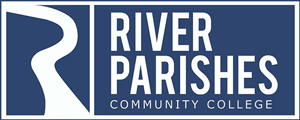Why Pro Bono Work Is Essential to a Successful Legal Career was originally published on Firsthand.
Sonja Sahlsten is an associate at Finnegan in Washington, DC. In addition to her patent law practice, Sonja devotes significant time to pro bono and has found the work challenging and fulfilling. Sonja's pro bono work has given her opportunities to develop her legal skills and confidence, which has helped advance her career.
Finnegan offers a range of civil and criminal pro bono opportunities across its offices. Sonja focuses her pro bono practice on criminal resentencing, including clemency and juvenile resentencing cases.
Pro bono presents opportunities to learn new areas of the law and challenges you to take greater responsibility.
My billable practice is focused on patent litigation covering a range of technologies. Through my pro bono work, I have learned sentencing law and criminal procedure. My first foray was into federal sentencing through my work on a clemency case. More recently, I have focused on juvenile resentencing cases under DC's Incarceration Reduction Amendment Act, which provides an opportunity for a sentence reduction for people who committed their crimes as juveniles, have served more than 15 years, and do not pose a danger to the community. Learning an entirely new substantive area of law has given me the confidence to know that I can handle cases beyond my legal and technical niche.
Pro bono cases also allow junior attorneys to take the lead role on a case. In my patent cases, most of the important decisions are made by the partners. My pro bono cases have given me the opportunity to lead cases, develop the strategy, and make important decisions at a much earlier stage of my career.
Pro bono helps develop skills that translate to your billable practice.
Pro bono has provided a lot of the big “firsts” of my career. The first time I spoke in court was in a pro bono case. The first time I was entirely responsible for drafting a motion was in a pro bono case. Earlier this year, I did the first closing argument of my career at a resentencing hearing. Developing these oral advocacy skills in my pro bono cases has given me the confidence to ask and be prepared to argue motions in my patent cases.
My pro bono cases have also helped me develop better client communication skills. In addition to keeping the client updated on their case and answering their questions, two very important client communication skills I have developed through my pro bono practice is managing expectations and delivering difficult news. In challenging resentencing cases, I like to project optimism and confidence to the client, but I also need to convey that resentencing is not guaranteed or that a partial sentence reduction is a possible outcome. These conversations can be difficult, but it is my responsibility to be candid with the client to help them set reasonable expectations. I have also had to deliver bad news—for example, that a client's resentencing hearing was significantly postponed or that a client's clemency petition was denied. I have learned that the best way to deliver bad news is to do so directly and with compassion. In these circumstances, despite the bad news, the client has been grateful for my representation and professionalism.
Pro bono allows you to use your talents to provide high-quality legal services to those in need.
Many people in need of pro bono legal representation are encountering the law at one of the most difficult moments of their life. At that very moment, they are thrust into an unfamiliar legal system that can be intimidating. The key to any successful lawyer-client relationship is trust. Earning the trust of your pro bono client can be challenging, especially because many clients enter the relationship with a healthy skepticism, if not outright distrust, of the legal system and its players. In my experience, the best way to build trust with your client is to be a good listener, explain procedure and substance thoroughly, answer every question, and keep your client's needs at the forefront of everything you do. I treat my pro bono clients with the same level of attentiveness and responsiveness as any other client because the pro bono client and their legal needs are just as important.
Through my resentencing work, I have had the privilege of seeing restorative justice in action and witnessed the legal system grant second chances to deserving individuals. I keep in touch with my former clients who have returned home and am inspired by the positive contributions they have made to their communities. Best of all, my pro bono practice allows me to use my skills to help people in need. I never appreciated how impactful this was until an experience I had in one of my resentencing cases. I brought a draft of the motion for sentence reduction with me during a legal visit so that my client could review it and provide input. When he read it, he was overcome with emotion that someone would advocate that zealously on his behalf. The greatest gift we can give as lawyers is our advocacy. And there is no better way than pro bono to put your time and talents to use in the service of others.
—

 Sonja Sahlsten focuses on patent litigation before U.S. district courts and the U.S. International Trade Commission (ITC). A former clerk at the U.S. Court of Appeals for the Federal Circuit, Sonja also focuses on patent appeals. She has a technical background in mechanical engineering, with experience in medical device, industrial manufacturing technologies, and renewable energy.
Sonja Sahlsten focuses on patent litigation before U.S. district courts and the U.S. International Trade Commission (ITC). A former clerk at the U.S. Court of Appeals for the Federal Circuit, Sonja also focuses on patent appeals. She has a technical background in mechanical engineering, with experience in medical device, industrial manufacturing technologies, and renewable energy.
This is a sponsored post by Finnegan, Henderson, Farabow, Garrett & Dunner. To view the firm’s full profile, click here.





